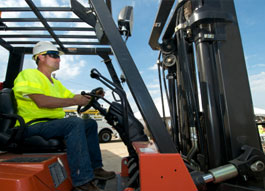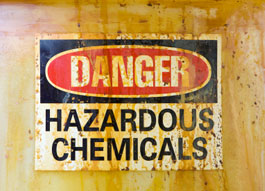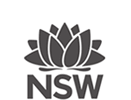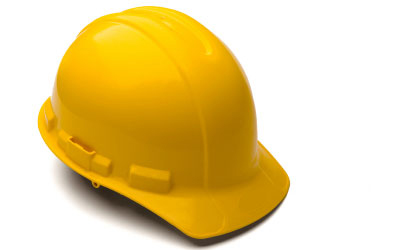Service Listing » Work Health and Safety
General Construction Induction Training
-
General Construction Induction Training (GIT) provides people working in the construction industry with a basic knowledge of workplace health and safety, the common hazards and risks likely to be encountered on construction sites and how these risks should be controlled.

-
Replacements
-
Apply and Pay for a GIT/HRW/TCT Replacement Card Online
If you have lost your General Construction Induction Training Card, apply online for a quick replacement
Look up a Record-
Find a GIT Registered Training Organisation
Find a General Construction Induction Training Registered training organisation by name or suburb.
Partner Services-
RTOs sign in to manage courses
RTOs sign in to manage courses including notification of training and payment of fees.
Information And Links-
All about General Construction Induction Training Cards
General Construction Induction Training Card Information
-
GIT Code of Practice
National Code of Practice for Induction for Construction Work
-
Apply and Pay for a GIT/HRW/TCT Replacement Card Online
-
General Construction Induction Training
GIT provides people working in the construction industry with a basic knowledge of workplace health and safety, the common hazards and risks likely to be encountered on construction sites and how these risks should be controlled. This training is required by all person involved in construction work including persons with control of construction projects, control of construction sites and persons carrying out construction work (e.g. principal contractors, sub contractors, managers, supervisors, workers and self employed etc).
GIT is delivered by registered training organisations (RTOs) and consists of face-to-face training and assessment in NSW. On successful completion of the training the participant receives a a statement of training, and a GIT card. Only Registered Training Organisations (RTOs) approved by SafeWork NSW can deliver GIT in NSW. This statement is valid for 60 day and allows the participant to work on a construction site while the GIT card is produced.
Please note participants to this course require 100 points evidence of identity (EOI) prior to being accepted to commence the training.
-
 Card Holder Enquiries
Card Holder Enquiries
Customer Service Centre, SafeWork NSW, Locked Bag 2906, LISAROW NSW 2252
RTO Enquiries
Third Party Management Unit
Phone: 1800 855 969
[email protected]
High Risk Work
-
A High Risk Work (HRW) licence is required to operate or use equipment such as forklifts, cranes (including tower cranes, mobile cranes, vehicle loading cranes, bridge and gantry cranes), hoists (including personnel and materials hoists), concrete placing booms, elevated work platforms and pressure equipment (boilers, turbines and steam engines) as well as for dogging, rigging and erecting scaffolding.

-
Look up a Record
-
Find a HRW Registered Training Organisation (RTO)
Find a High Risk Work registered training organisation by name or suburb.
Partner Services-
RTOs sign in to manage courses
RTOs sign in to manage HRW assessments including notification of assessments.
Information And Links-
All about High Risk Work Licences
High Risk Work Licensing information & Services from SafeWork NSW
-
High Risk Work National Standard
National Standard for Licensing Persons Performing High Risk Work
-
Find a HRW Registered Training Organisation (RTO)
-
High Risk Work Licence
SafeWork NSW issues national licences to perform high risk work (high risk work licences) for 29 classes of high risk work such as:
- forklifts
- scaffolding
- rigging
- dogging
- cranes including tower cranes, mobile cranes, vehicle loading cranes, bridge and gantry cranes
- hoists including personnel and materials hoists, elevated work platforms and concrete placing booms
- pressure equipment such as boilers, turbines and steam engines.
- High risk work licences are recognised in all Australian states and territories.
A person performing high risk work must hold a relevant licence unless they are undergoing training. Only Registered training organisations (RTOs) approved by SafeWork NSW can deliver training and assessment for high risk work licences in NSW. The training and assessment must be delivered under the supervision of an RTO but practical training can occur in the workplace.
-
 HRW Licence Enquiries
HRW Licence Enquiries
Customer Service Centre, SafeWork NSW, Locked Bag 2906, LISAROW NSW 2252
RTO Enquiries
Third Party Management Unit
Phone: 1800 855 969
[email protected]
Explosives & Fireworks
-
Licensing and notifications to control and regulate explosives, explosive precursors, fireworks and security sensitive dangerous substances throughout the supply chain.

-
New Applications
-
Notification of Pyrotechnic Display
Apply for a Notification of Pyrotechnic Display
Look up a Record-
Fireworks Display Search
List of all approved fireworks displays in your postcode
Information And Links-
All about Explosives & Fireworks Licence
Explosives & Fireworks Licensing information & Services from SafeWork NSW
-
Notification of Pyrotechnic Display
-
Explosives
A licence is required to manufacture, import, store, transport, supply, handle or use explosives, explosive precursors and security sensitive dangerous substances.
All licence applicants are subject to a national criminal history record check undertaken by NSW and Commonwealth police and security agencies. Only people with the appropriate SafeWork NSW licence can legally handle explosives and/or security sensitive dangerous substances.
SafeWork NSW must also be notified if any explosives, explosive precursors or security sensitive dangerous goods are imported or exported.FireworksThe possession, use, storage and transport of display fireworks is restricted to individuals holding a pyrotechnician's licence or fireworks (single use) licence.
There are safety and security requirements for the storage of fireworks depending on the amount and type of fireworks to be stored. Licences are also required to handle fireworks without supervision, manufacture fireworks or sell fireworks.
Notifications and operational conditions must be complied with when carrying out fireworks displays.SSDSSecurity sensitive ammonium nitrate is prescribed as a security sensitive dangerous substance and is any of the following:
- ammonium nitrate that is not a dangerous good of class 1 (ie an explosive)
- ammonium nitrate emulsions, suspensions or gels containing greater than 45 per cent ammonium nitrate
- ammonium nitrate mixtures containing greater than 45 per cent ammonium nitrate.
A licence is required to possess and use certain formulations of ammonium nitrate for:
- use as a fertilizer in agriculture, horticulture or other primary production
- bio-manufacturing
- education and research.
To use ammonium nitrate in the manufacture of explosives or for explosive blasting you, or a nominated person on behalf of a company, must have an unsupervised handling licence and either a licence to manufacture explosives or a blasting explosives user’s licence.
-
 Customer Service Centre
Customer Service Centre
SafeWork NSW
Locked Bag 2906
LISAROW 2252
Dangerous Goods Storage & Handling
-
Dangerous goods are substances or articles that present an immediate hazard to people, property or the environment. They include explosives; gases; flammable liquids; solids with a flammability hazard; oxidising substances; toxics; radioactive substances; corrosives and miscellaneous dangerous goods such as dry ice, molten bitumen and environmentally hazardous substances.

Quick Links
All about Dangerous Goods Licences
-
Information And Links
-
All about Dangerous Goods Licences
Dangerous Goods Licensing information & Services from SafeWork NSW
-
Australian Dangerous Goods Code
Australian Code for the Transport of Dangerous Goods by Road and Rail
-
Australian Explosives Code
Australian Code for the Transport of Explosives by Road and Rail
-
All about Dangerous Goods Licences
-
Dangerous Goods Storage & Handling
Dangerous goods are substances or articles that present an immediate hazard to people, property or the environment. They include explosives; gases; flammable liquids; solids with a flammability hazard; oxidising substances; toxics; radioactive substances; corrosives and miscellaneous dangerous goods such as dry ice, molten bitumen and environmentally hazardous substances.
Dangerous goods are listed in the Australian Code for the Transport of Dangerous Goods by Road and Rail. The Australian Code for the Transport of Explosives by Road and Rail contains a list of explosives.
You can also find out if you have dangerous goods by reading the information found on packages, product labels and on Material Safety Data Sheets. Your supplier is required by law to provide Material Safety Data Sheets with all dangerous goods they supply.
You must notify SafeWork NSW about the dangerous goods you store or handle. SafeWork NSW collects information about dangerous goods stored on premises to assist in the provision of emergency response and planning.
You must also develop a written emergency plan and provide a copy to NSW Fire Brigades or the NSW Rural Fire Service if the premises are in a rural fire district. The emergency plan must be reviewed every five years or earlier if there is a change in circumstances at the premises, or any adjacent premises.
The Storage and Handling of Dangerous Goods: Code of Practice has more information about the storage of dangerous goods or call 13 10 50.
-
 Customer Service Centre
Customer Service Centre
SafeWork NSW
Locked Bag 2906
LISAROW 2252
Category Index
Most Popular
RTOs sign in to manage courses including notification of training and payment of fees.
Apply and Pay for a GIT/HRW/TCT Replacement Card OnlineIf you have lost your General Construction Induction Training Card, apply online for a quick replacement
Find a GIT Registered Training OrganisationFind a General Construction Induction Training Registered training organisation by name or suburb.
Find a HRW Registered Training Organisation (RTO)Find a High Risk Work registered training organisation by name or suburb.
Notification of Pyrotechnic DisplayApply for a Notification of Pyrotechnic Display
Useful Links
National Code of Practice for Induction for Construction Work
High Risk Work National StandardNational Standard for Licensing Persons Performing High Risk Work
Australian Dangerous Goods CodeAustralian Code for the Transport of Dangerous Goods by Road and Rail
Australian Explosives CodeAustralian Code for the Transport of Explosives by Road and Rail
Notification of Pyrotechnic DisplayApply for a Notification of Pyrotechnic Display


